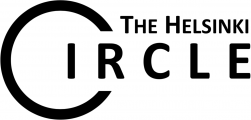Petri Turunen While doing metaphilosophy, one can come across some rather hostile attitudes. This is particularly true if one dares to consider such questions as how is, can, or even should philosophy be practiced. Some say that such methodological considerations are a non-starter since philosophy, by its very nature, should not have any constraints. PhilosophyContinue reading “No Escape from Method”
Tag Archives: metaphilosophy
The Fear of Instability
Ilkka Pättiniemi While Ilmari is dealing with the errors of empiricism (an endeavour on which I hope to contribute), I will continue diagnosing the realist’s condition. There is of course the idea that if we are not in touch with the really real, then anything goes. That is, a straightforward fear or relativism. But thereContinue reading “The Fear of Instability”
An Addendum on Classification
Ilkka Pättiniemi Last week in considering the realist and conventionalist arguments about the nature of classification, I ended up putting a weak – or perhaps even silly! – argument in the conventionalists mouth. Namely, I had the conventionalist claim that the following is an ampliative inference: “upon encountering a Dewey decimal for a previously unknownContinue reading “An Addendum on Classification”
How to Test a (Metaphysical) Theory?
Ilmari Hirvonen Take any theory, model, or claim that is about something. Now, it seems rather obvious that there is a distinction to be made between what is true according to the theory and whether the theory itself is true. In order to make this clearer, consider Newton’s second law: F = ma. By substitutingContinue reading “How to Test a (Metaphysical) Theory?”
The Spirit of Verificationism
Ilkka Pättiniemi In philosophy verificationism seems to often enter the fray when one or more thinkers come to realize that the field has become stale and sterile – old ideas show no way forward, no way of settling controversies. The old ways of doing things have, the verificationist thinks, gotten us stuck. Verificationism, then, isContinue reading “The Spirit of Verificationism”
The Trouble With Counterfactuals
Ilkka Pättiniemi An important type of statements are counterfactual statements, that is statements about what would be the case if a fact of the matter were different than it actually is. “If a massive meteor had not hit the Earth at around the KT-boundary, birds would not be the only extant dinosaurs” is a counterfactualContinue reading “The Trouble With Counterfactuals”
Rorty on Truth: Truth, What is it Good For?
Ilkka Pättiniemi Welcome, dear reader, to the third installment of Rorty on Truth. This time around I will take a look at what the concept of ‘truth’ can be good for, at least according to Rorty. Let’s start with a caricature. (I’m not sure that this in fact is a caricature, but am perfectly willingContinue reading “Rorty on Truth: Truth, What is it Good For?”
The Metaphysician’s Motte-and-Bailey
Ilmari Hirvonen Philosophers often think quite highly of what they are doing, and those engaged in metaphysics are no exception. Indeed, metaphysicians offer perhaps the clearest example of this attitude, for they frequently insist that their work is not only important but, in fact, necessary. After all, who could deny the self-evident truth that everyoneContinue reading “The Metaphysician’s Motte-and-Bailey”
Are You Serious?! Zeno’s Paradox and the Impossibility of Movement
Ilkka Pättiniemi In a recent piece on Starts With a Bang, Ethan Siegel takes up Zeno’s paradox and argues that it takes physics to solve it. Here I will not so much look at Siegel’s piece as take it as an opportunity to look at the absurdity of Zeno’s paradox seriously. Again this will takeContinue reading “Are You Serious?! Zeno’s Paradox and the Impossibility of Movement”
A Brief Remark on Thought Experiments, or Did Galileo Refute Aristotle?
Ilkka Pättiniemi The use of a specific a priori method in philosophy is often justified by remarking that the same method is also used to good effect in physics. The method in question is, of course, the use of thought experiments to refute, or to support, claims or theories. A thought experiment can be characterizedContinue reading “A Brief Remark on Thought Experiments, or Did Galileo Refute Aristotle?”

